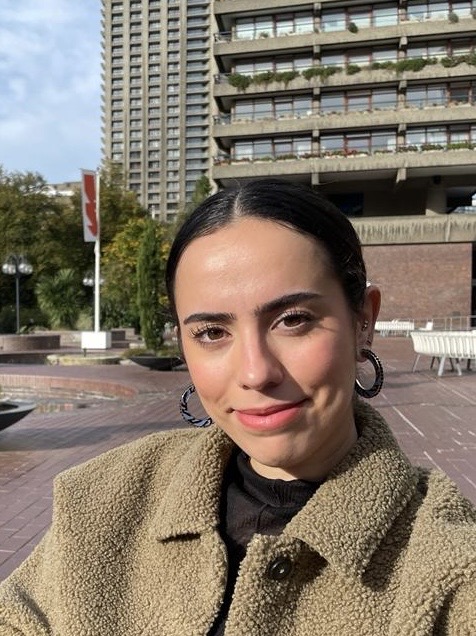Julieta Gil Loizaga
Julieta studied Linguistics BA (2022)

Why did you study Linguistics/English Language at Queen Mary? Did you have a particular career path in mind?
I have enjoyed reading about language, philosophy and science since my early teens. After moving to London at 21, I decided to study Linguistics, thinking I would continue into further education in computational linguistics, neurolinguistics or cognitive science. Although research looked interesting, I knew from the start I wanted to work in industry.
What topics did you like learning about and was there anything that surprised you in your studies?
I enjoyed learning about syntax, phonetics and phonology the most, and connecting the knowledge from different subjects to form a better understanding of human language.
I was surprised to learn that there’s no actual definition of what a word is!
Can you describe your career path to date and touch on your current role? How did you arrive in your current role?
I’ve worked in hospitality and childcare before, and during my studies I worked part time at a Tech/Childcare startup, Koru Kids, in their Operations team. Being a small company, I wore many hats, helping create and implement processes, helping with recruiting childminders and matching them to parents, etc.
Wanting to have as many opportunities as possible, I wanted to test out a more corporate job. I applied to a few Internships at Investment Banks. I completed the Spring Internship at Goldman Sachs during my first year, and came back for a Summer Internship after my second year. At the end of the Summer I got offered a full time role after graduation.
How do you describe the skills and knowledge you gained during your Linguistics/English Language degree to your employers?
I explain that linguistics is data analysis where the data is about language. It’s all about being able to articulate your questions and how you plan to answer them, using rigorous methodologies and testing, and being able to connect the dots and see beyond the top layer, to figure out the system underneath.
Whether it’s syntax or experimental sociolinguistics, your ability to carry out projects from start to finish and deliver measurable results is highly valued. Plus, I’ve never met a person who didn’t like a language fact!
Can you describe what a typical working day looks like for you?
I work in a global team, so in the mornings I connect with my colleagues in Singapore and in the afternoons I chat with the US team. We collaborate on our projects to deliver business analytics tools to our team. I spend a lot of time talking to stakeholders and users about their requirements and business questions and how I can provide data that helps them.
I source data from Databases, I build pipelines that transform data into meaningful insights and then put it all together in dashboards and email reports.
I’m also involved in teaching data literacy across the bank, so more people can use and produce data insights.
What are your career plans for the future/Are you looking to expand your skill set in anything?
I want to develop my technical skills. A common career development from business analytics is to learn more about data science, machine learning and the cloud. I working towards that.
How did your degree prepare you for your current job role? Which skills that you developed during your degree have you brought to your current job?
I took every opportunity to develop technical skills during my degree: python, R, statistical analysis, experimental linguistics, all gave me the foundations for analytics.
Other useful skills i developed at QMUL were critical thinking and clear writing, being able to reach out for help effectively, and learning independently.
Is there any advice you would give to current students or recent graduates considering their career options?
Choose the modules that interest you the most and not just what you think you ‘should’ take. Unless it’s a hard requirement, most employers want to hear about you being passionate and performing your best - that’s easiest when you actually enjoyed the subject. This will also teach you which tasks you excel at, so you can tailor your job hunt by the tasks required, instead of job titles.
Most technical skills can be learned online, use your Coursera subscription!
What advice would you give to a prospective student considering the course you studied and Queen Mary?
Do it! The quality of teaching is excellent, and staff are very approachable and helpful. The course is well designed and will give you the foundations to explore any linguistic topic you want, and beyond.
What was special about your time at Queen Mary? Can you give one or two examples of your most memorable moments?
I once used phonetics software to visualise my Spanish accent when saying the word ‘day’: a difference that’s inaudible to the human ear, it becomes apparent when you know what to look for!
Looking at my family as I picked up my diploma and the Principal’s Prize on Graduation day was my proudest moment at Queen Mary. They all came from Spain for the occasion, as I’m the first in my family to graduate from university. Queen Mary had outstanding support that made this possible.